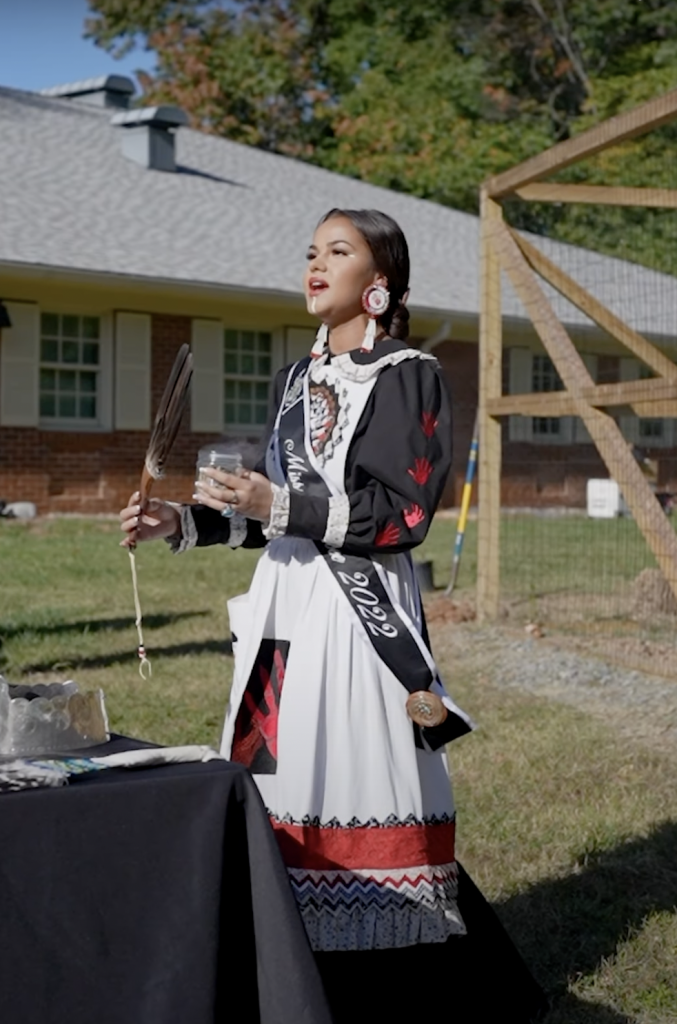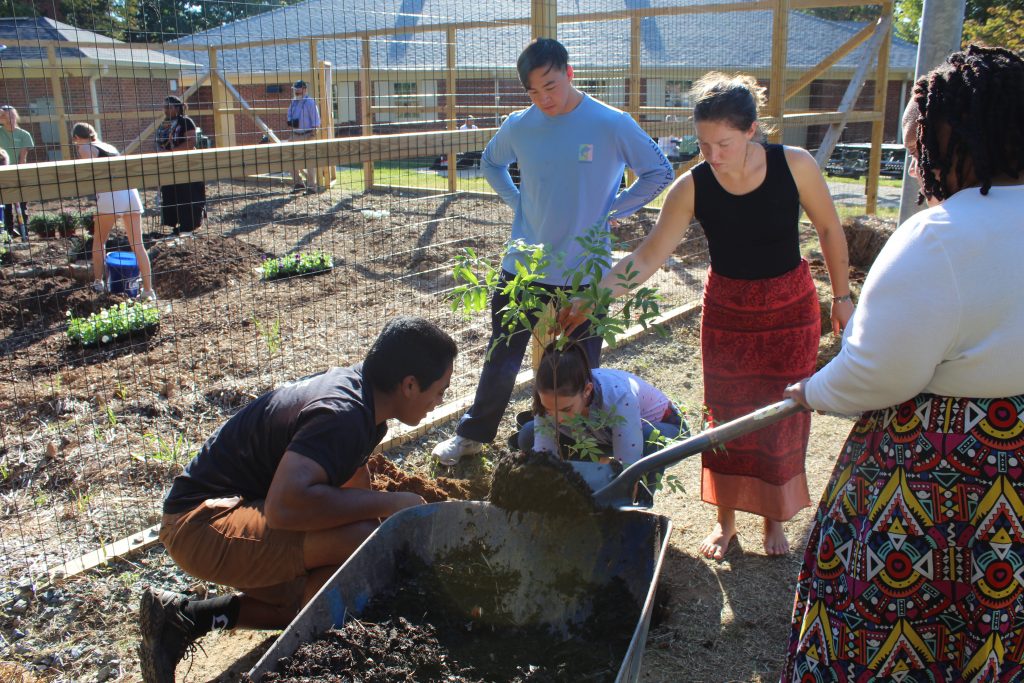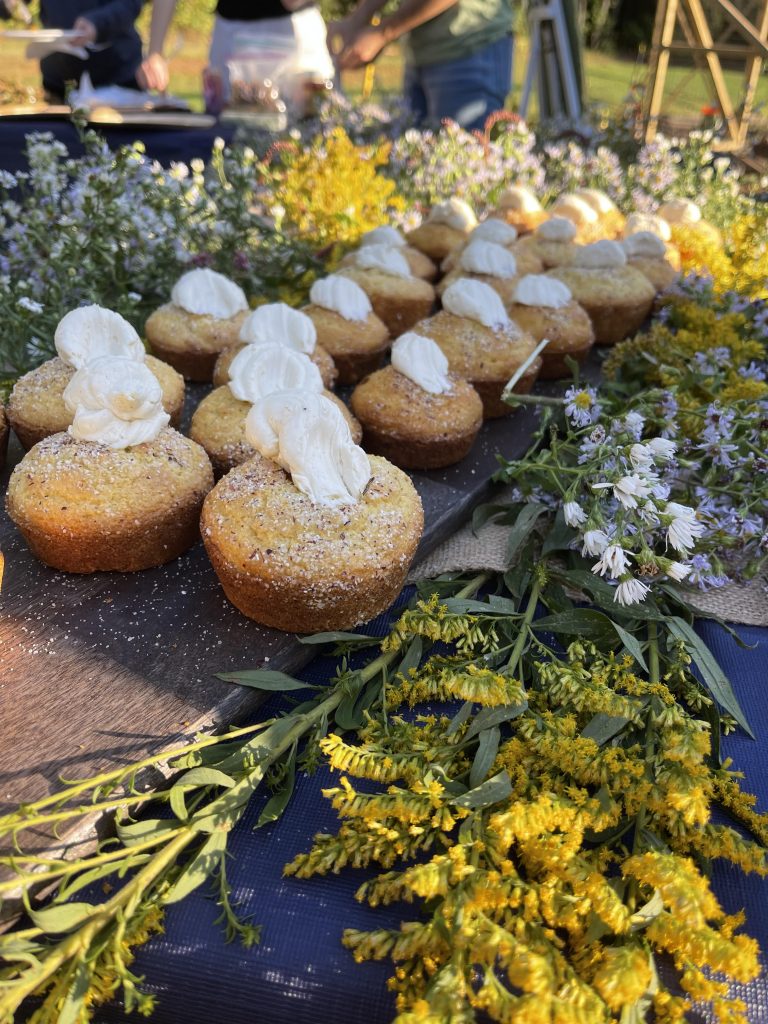Indigenous Peoples’ Day: Rooting & Remembering
The Intercultural Center and Office of Sustainability welcomed both Native and non-Native members of the Wake Forest community to the newly cultivated Three Sisters Garden in celebration of Indigenous Peoples’ Day, a reclamation of Columbus Day.
“Today, we get to gather here and celebrate the resilience of our people against the forces of colonialism, and violence, and say that we are still here. That we have survived.”
Savannah Baber, Assistant Director of the Intercultural Center
Senior Mahlea Hunt, citizen of the Lumbee Tribe and current Miss Lumbee, began the celebration with a ceremony to bring all attendees together in connection to the space and each other. Hunt began with a smudging ceremony – a closed practice and ceremonial ritual involving the burning of sage, tobacco and other herbs, to purify, cleanse and bless the new garden space, followed by a song.

“We honor Indigenous Peoples’ Day, formerly known as Columbus Day, because we choose to celebrate resilience, not genocide,” Mahlea says. Hunt expanded on the significance of Indigenous Peoples’ Day and the importance of uplifting Indigenous lives and voices everyday. As Miss Lumbee, Mahlea’s platform is My Sisters’ Keeper, advocating for Missing and Murdered Indigenous Women and Girls (MMIWG). The MMIWG Movement, which began in 2015, works to fight for justice Indigenous women and girls who experience violence at alarmingly high rates. Hunt’s regalia was symbolic of her work as Miss Lumbee and called attention to the MMIWG movement.
“The red hands stand for the voices of the missing sisters that go unheard.”
Mahlea Hunt, Miss Lumbee
Following the opening ceremony, attendees were then invited into the Three Sisters Garden, a space intended to uplift Indigenous peoples, knowledge and culture, for a volunteer work session planting blueberry and elderberry, two plants integral in traditional medicine practices, and building a turtle in the center of the garden. The turtle is symbolic of Turtle Island – the land colonizers would claim as the Americas and represents healing, wisdom, spirituality, health, protection and fertility in Indigenous culture.


The turtle is surrounded by the medicine wheel, created by the planting of four color coordinated sections: red, yellow, black and white. Red represents birth, yellow represents growth, black represents maturity, and the color white represents death. Together, the four colors represent the four qualities of a balanced life – the spiritual, emotional, physical and intellectual. The colors also represent the four colors of man, four seasons, and four directions. Sage was planted in the center of the turtle’s shell during the celebration. This location in the garden will be planted with tobacco, sage and the three sisters in rotation.

Following a cultivation hour in the garden, attendees shared a meal catered by Chef Jordan Rainbolt of Native Root centered around the three sisters (corn, beans, and squash), seasonality, and locality. Native Root was created by Rainbolt with the desire to center appreciation for both food and community through a focus on the use of Indigenous ingredients and cooking traditions, pulling from her family’s Native heritage.

While sharing a meal together around the garden space, attendees engaged in a talking circle, a Native practice that creates an open, equal space for conversation, sharing, and educating. Savannah Baber, Assistant Director of the Intercultural Center, and Mahlea Hunt led the talking circle focusing on past experiences, and future opportunities to engage with, and learn from Indigenous culture and people on campus.
